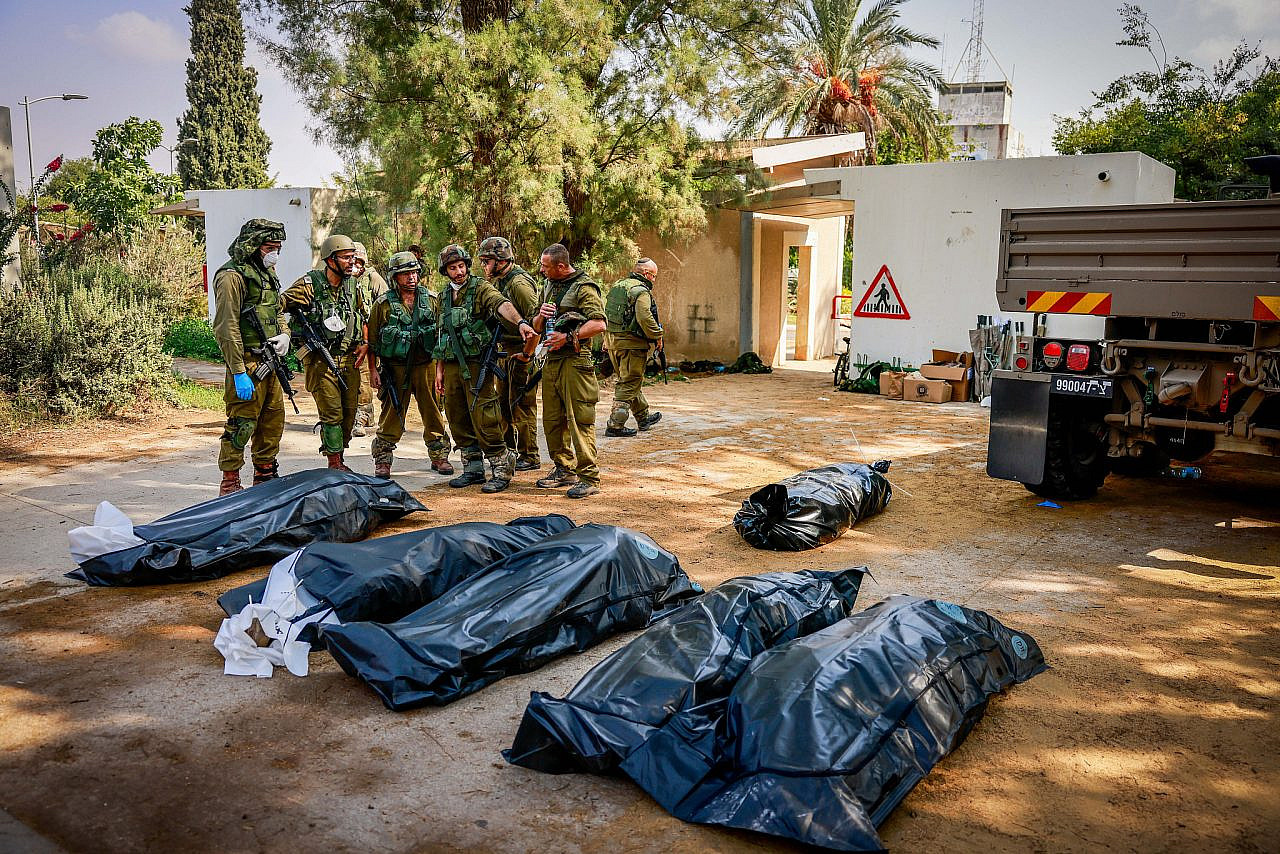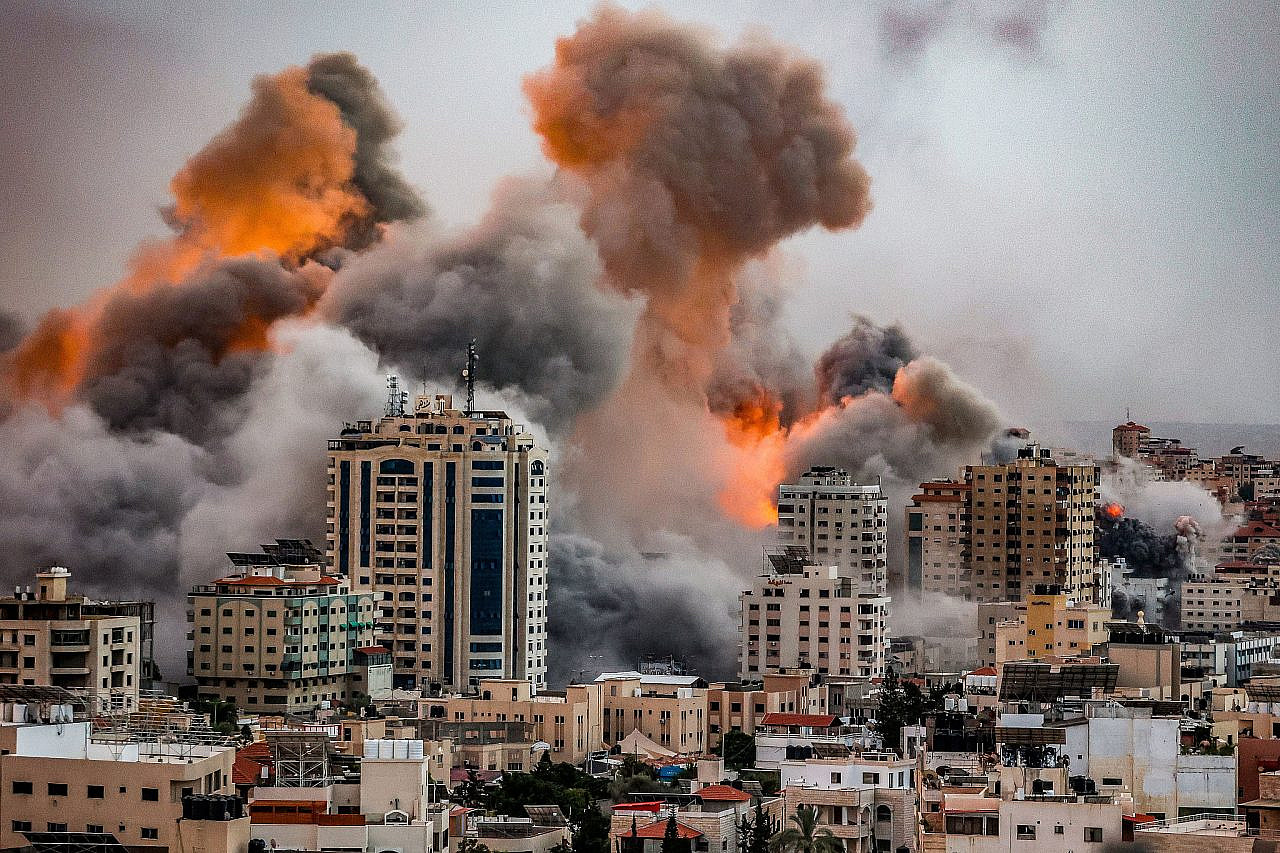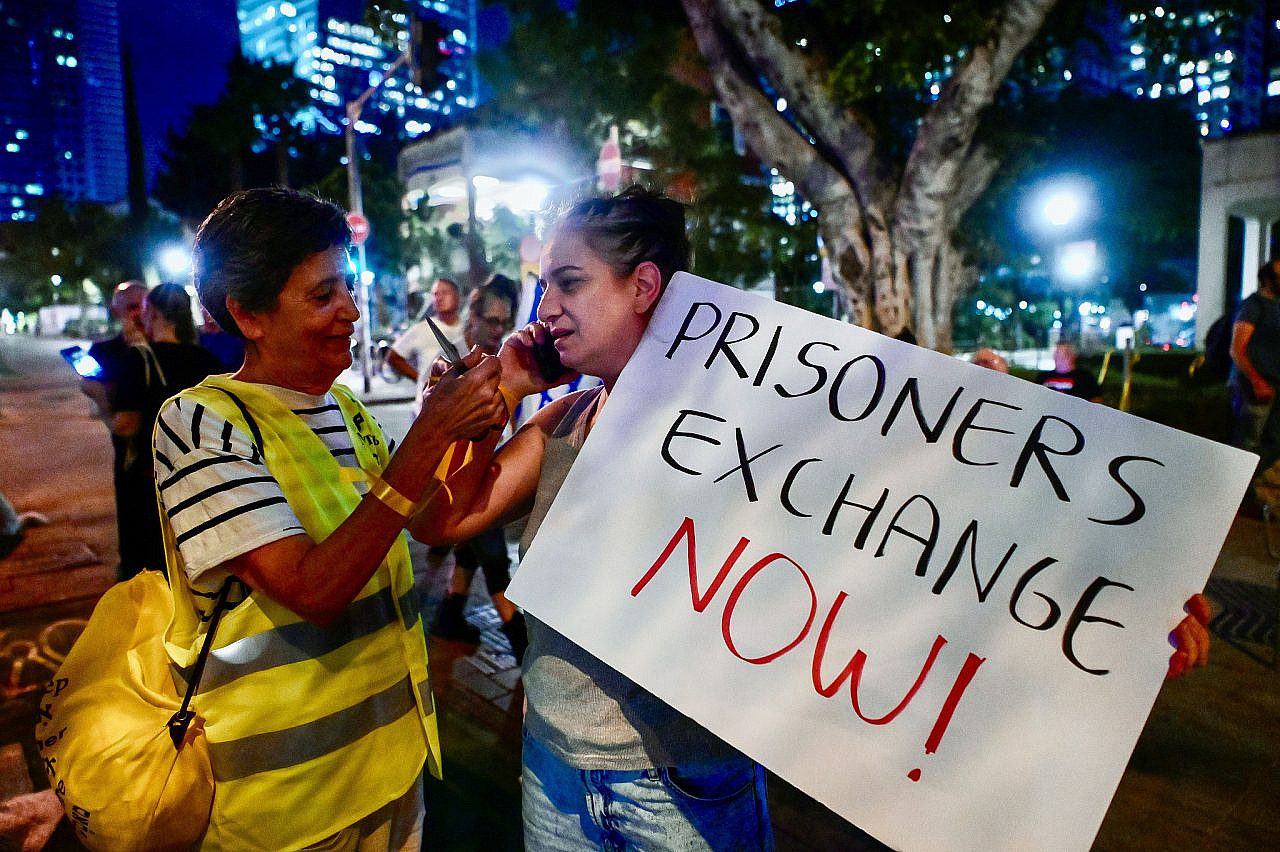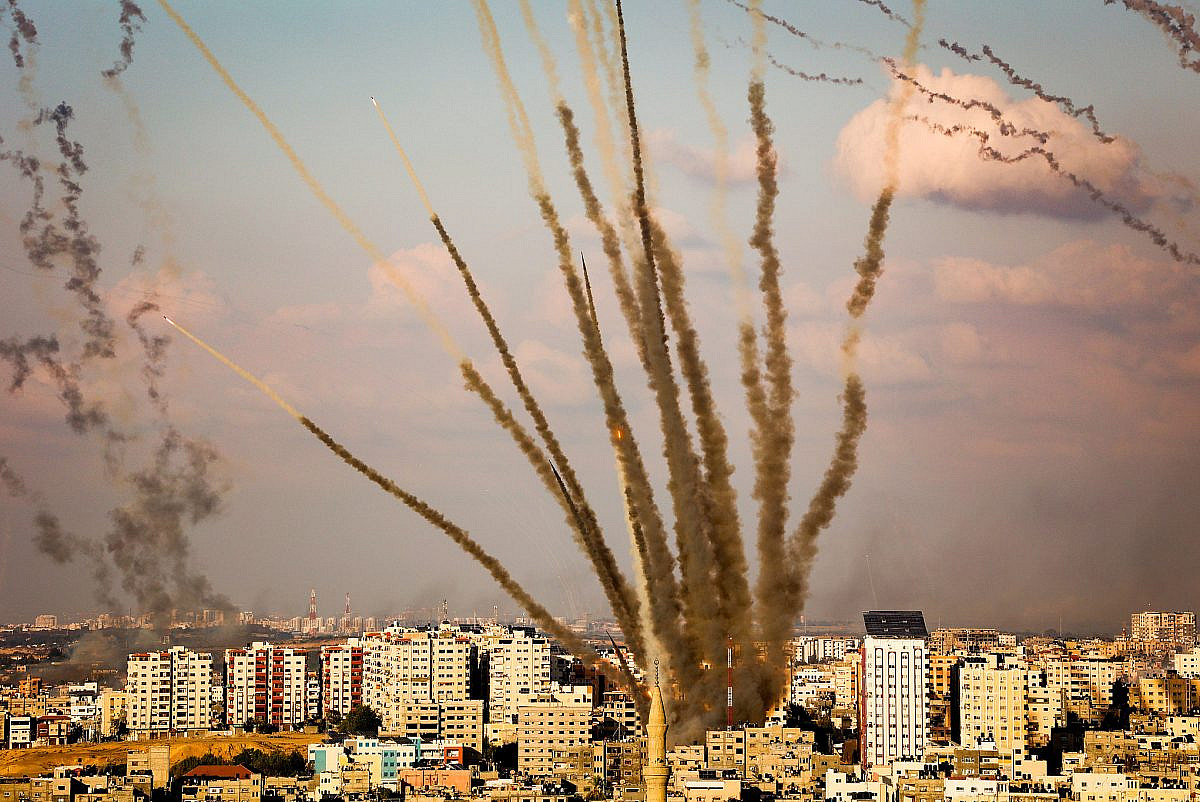On that cursed and bloody Saturday morning, I wanted to believe that I was in an unbearable nightmare — that I would very soon wake up and it would all be over, and I would return to another normal and boring day off. But no. We — Israelis and Palestinians, Jews and Arabs, here in Israel, across the separation fence in Gaza, in the south, in the center, in the north, in Jerusalem, in the West Bank and everywhere — have fallen into a terrible reality, and it is impossible to breathe. The heart and mind cannot escape the horror of corpses, the wounded, and captives.
We knew that day that a massive, cruel, and boundless Israeli reaction would open the gates of hell for more than 2 million people, the vast majority of whom, just like us, are in complete shock. Their only sin is being Gazans under siege for 16 years — innocent people, who will pay the horrific price of Israel’s “revenge.”
The most moral army in the world got to work immediately, collecting its crushed honor and going on the attack. The military’s onslaught might quench the thirst of the soul yearning for the annihilation of the human beings on the other side of the breached Gaza fence, but we — Israelis and Palestinians — will likely drown in the bloodshed.
Since then, I have been living in two parallel worlds. In one, I see TikTok videos, Instagram reels, and terrifying posts from citizens living in Israel’s south, begging the masked gunmen who invaded their homes to spare their lives, before being massacred. Pictures of murdered children, older adults, women, and men. Lost children, kidnapped older women, and a terrified mother, hugging two toddlers and yearning for salvation.
No human being can handle these situations, facing certain death in the basement of the house, on the kitchen floor, next to the sidewalk, on the way to the getaway car. This is the real terrorism: invading a place that is supposed to be safer than anywhere else, and opening fire on the helpless. There is no other definition for this act.

In the other, parallel world, videos of destruction, shelling, dismembered bodies, and whole families perishing under the ruins of their homes play on my mind. Videos about “iron swords” (the name the Israeli military has given to its “operation” in Gaza), concrete and dirt under which bodies of Palestinians will be buried in Gaza. Fathers run with their bleeding babies in their arms, and mothers scream from pain and loss in Gaza’s burning streets.
‘There’s death from all sides’
The Israeli air force attack has been going on for days. Shells, missiles, and bombs are dropping everywhere. From my home in the center of the country, I can hear and see the Israeli fighter jets fly overhead, one after the other. My son has developed expertise in the sounds of war: an Israeli bomb shakes the entire area and is accompanied by intense lightning; Hamas rockets make a much weaker and shorter “boom,” and if the Iron Dome intercepts the rocket, you see the explosion in the air, like a mushroom in the sky.
On the one hand, I found myself following the news about the missing and the murdered from the Naqab/Negev, Jewish friends and acquaintances who are looking online for relatives, and an entire Bedouin family — including four children — living in the Naqab without a nearby shelter, killed. On the other hand, I tried to talk on WhatsApp with my friends from Gaza, women I met two months ago in the refugee camps, to make sure that they are alive.
“My uncles lived in the large Palestine Tower that was bombed first,” one of them said. “They received a call from the army that told them to evacuate, and they left after five minutes. All the tenants saw their houses falling before their eyes. The uncles are fine, some of them are on the street, in schools, with family members, but it’s also dangerous there. On the second day [of bombings], there were no warnings, the bombs came from the sky and that’s it. There’s death from all sides, anyone could die at any moment. If I survive, surely someone else from my family will die.”
Another woman, from Al-Maghazi refugee camp, told me: “I lost 15 family members in two shellings. My brother and his children did not have time to leave the house. Nephews and cousins, they all hid on one floor. Seven bodies have been found so far; I don’t know how and when we will bury them.”

From the Deir al-Balah refugee camp, an activist at the women’s center wrote to me: “We are waiting for death, praying it will be short. There is no water, no electricity, and no food. There are people under siege, and maybe the world will now understand that we have been imprisoned here for years.”
And another friend said: “Obviously [the attack by Hamas] is horrifying. We are all in fear of this war. The blow to the Israelis is very hard, and you know that I hate what Hamas has been doing to us for years. Israel is shelling us every year or two, and has been killing thousands for 15 years.
“But maybe there is a little hope, that all the martyrs who will fall will not be in vain, that maybe they will be able to reach a real ceasefire this time in exchange for the hostages and not just a miserable hudna [ceasefire or truce] — a hudna without freedom, without the ability to move, without crossings, without the ability to earn a living with dignity, when you wait for a hundred dollars from Qatar that Hamas distributes. The world, and the Israelis in particular, will understand that we cannot be imprisoned forever.”
Offered refuge in Ramallah
While replaying these difficult conversations with my female friends in Gaza, who might not be alive in a few hours, I received news that my friend Vivian Silver from Kibbutz Be’eri had been kidnapped. I rummaged through my correspondence with her and couldn’t breathe while imagining her on the way to an unknown place, somewhere in Gaza, surrounded by masked men.
Vivian is a peace activist, a brave woman with a wonderful sense of humor, who always refused to give up. She worked to end the siege and wished for a return to the days when she could visit Gaza freely. I convinced myself that we would still tell jokes together about her experience in captivity. Surely she will come back, I told myself.

The names of the 13 murdered Bedouins were published, followed by the list of those who had been kidnapped from the Naqab and were missing. I did not see their families at the press conference held by the relatives of the hostages. I’m pretty sure we won’t hear about their suffering, for well-known reasons.
And if Palestinian citizens of Israel were not torn and lost enough from all this trauma, there is the added fear of violence against them by Jews. Palestinian media groups in so-called “mixed cities” — which have not yet recovered from the trauma of the events of May 2021 — issued alerts on how to behave in a mixed and seething environment amid the widespread circulation on Hebrew social media of messages inciting violence against Arabs.
My children warned me against appearing in the Hebrew media, thinking that any message for peace, coexistence, solidarity, and a little sanity will not bring about any change now, but may only endanger the family, as happened during the 2014 war on Gaza.
Most read on +972
A friend from Bil’in, near Ramallah in the occupied West Bank, called to check on my wellbeing, because she heard that Hamas rockets had also reached us and that settlers were threatening revenge attacks against us. “Poor people over there, the Arabs in Israel,” she told me. “You are being attacked by all sides. Whatever you do, you will be hit. Come to me with the children for a few days.” A Palestinian woman from Ramallah offers refuge to a Palestinian woman in Israel out of fear that she will be hit by Hamas missiles or by angry Jews with whom she lives.
I am surrounded by these thoughts about this cursed and complex place we were born into, and about the wretched leadership on both sides that is leading us — a human fabric so rich, so sad and so vital at the same time — to nowhere. My heart and mind declared a complete stop, a standstill. I can’t anymore. I just need silence.





